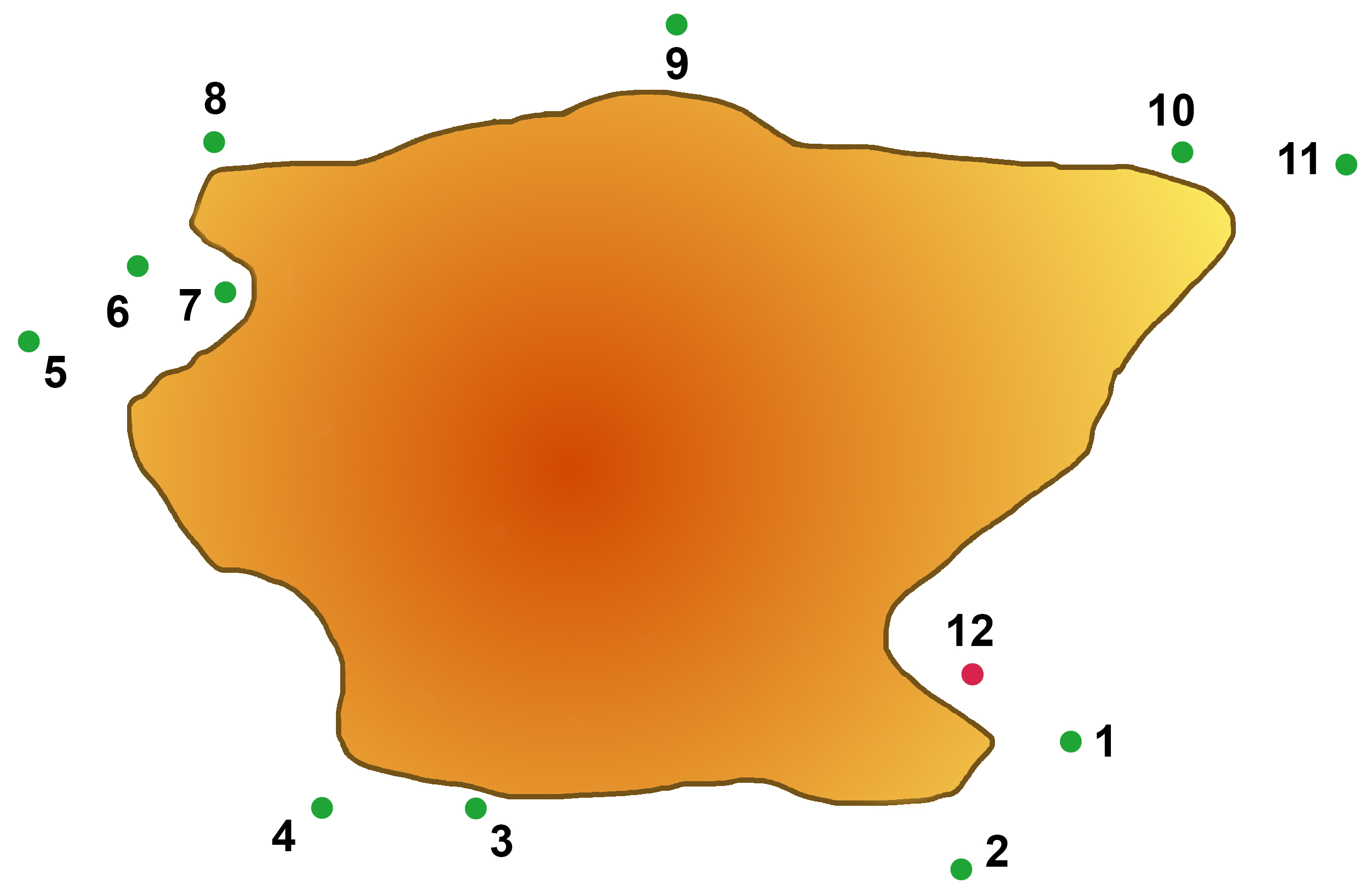Problems & Answers
Each problem is worth 20 points.
Sources:
Below you can find recordings of ten sentences in Mokilese that can be translated into English as follows:
- The man gave the pig to me.
- I will give the pig to the man.
- I am going there today.
- The woman went with me to the beach.
- I will not go there tomorrow.
- The man will not give the pig to me.
- I did not give the pig to the man.
- The woman took the fish from the man.
- I will not give the pig to the man.
- I went there yesterday.
(a) Determine the correct correspondences:
(b) Translate into English:
(!) Mokilese is an Austronesian language with about a thousand speakers, originally spoken in Micronesia.
Twelve speakers of the Lillooet language stand around a mountain as shown below:

Persons 1–11 correspond in a certain order to letters A to K. You can use the following form to find out how these 11 people would refer to one another under the circumstances. For example, the query a b would tell you how person A would call person B.
(a) Determine who is who:
(b) How would person 12 call persons C, E, G, I, and K?
(!) Lillooet is a Salishan language spoken by about 300 people in Canada.
Each of the following videos shows a word of American Sign Language. The English translation of the word is provided under the video.
mother
noon
believe
positive
wife
opposite
fortune-teller, prophet
agree
dinner (supper)
girl
divorce
supermarket
buyer
brother
(a) Translate the following ASL words into English (note that each word in ASL can have two or more related meanings; you are asked to provide just one):
(b) What could the words brother and son look like in ASL about 150 years ago?
(!) ASL is a natural language unrelated to English. When signing, speakers may optionally use facial expressions or move their lips.
A dictionary of the Luganda language can be queried using the form below. Apart from the letters of the Latin alphabet, you can use two wildcard characters: ? (question mark), which replaces any single letter, and * (asterisk), which replaces any string of letters, including none. For example, the word eka can be matched by e?a, ?k*, e??, *a, *e*k*a*, ???, eka, *, etc.
The result of a query is the number of words in the dictionary that match the query.
Here are a few misspelled Luganda words: efiariza, fuuwdeta, irondalonda, maloriza, omungureza, sekeetarera, uli, waweabira, woilera, yaaypanira. These words do not occur in the dictionary (neither spelled correctly nor misspelled).
(a) Among the 10 misspelled words, 5 break rule X, 4 break rule Y, and 3 break rule Z. What are these rules?
(b) Correct the words by replacing exactly one letter in each. Note that there is only one way of doing so without breaking any rules of the language.
(!) Luganda is a Niger–Congo language spoken by five million people in Uganda.
The contest is over.
Answer key: hideshow


